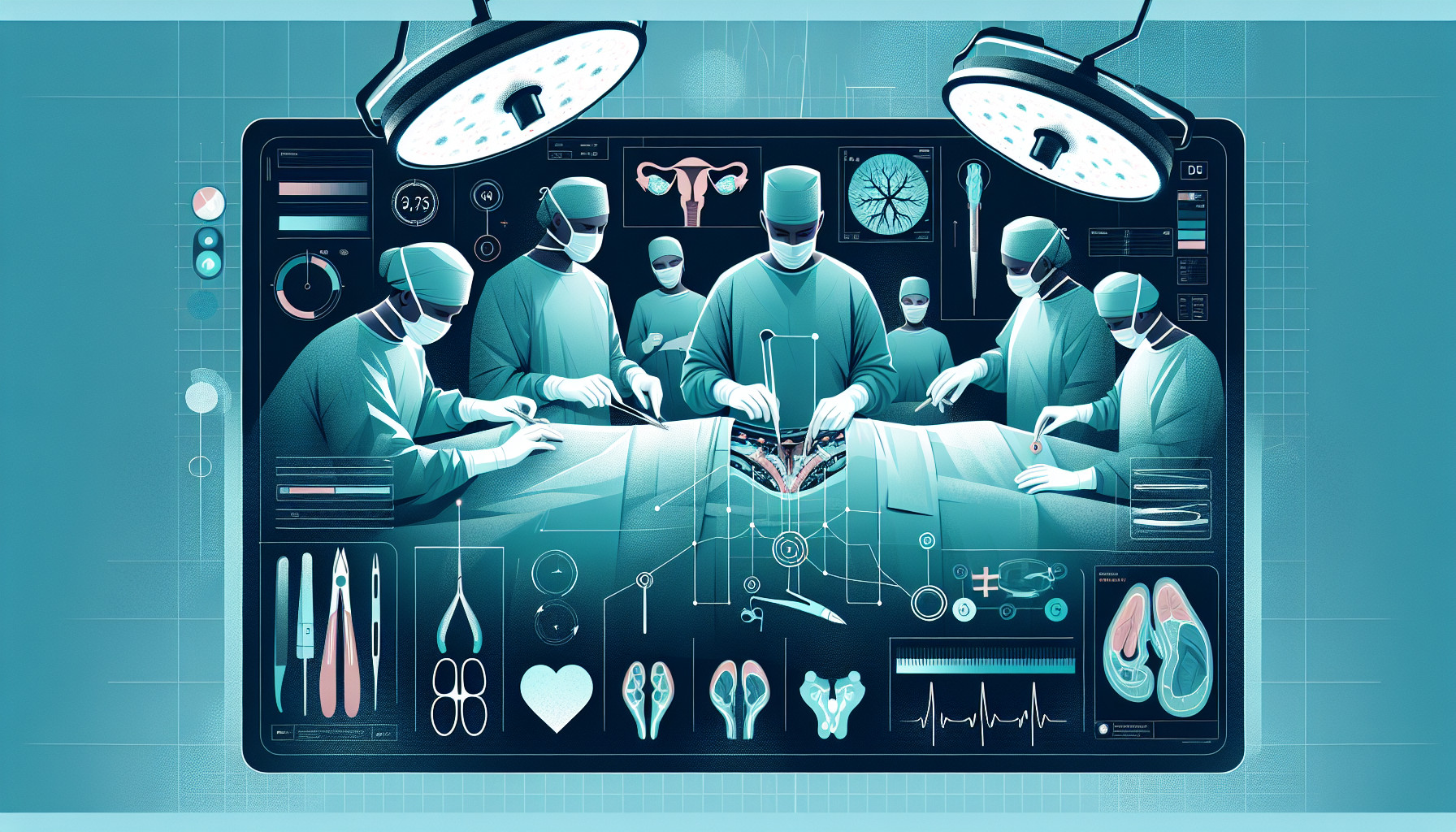Our Summary
This research paper discusses the case of a 36-year-old man who was found to have testicular cancer inside his abdomen, despite having had surgery for an undescended testicle as a baby. The cancer was discovered during an ultrasound exam after the patient had blood in his urine and slightly elevated levels of a specific hormone. An MRI showed a clear, intense mass in his abdomen, which was suspected to be testicular cancer. During surgery, doctors found a tumor along with a looped tube that carries sperm (vas deferens) going into the groin area. The part of this tube that had been outside the groin area had already been removed. The tumor was identified as a seminoma, a type of testicular cancer. The patient has been free of cancer for 12 months since the surgery. This case highlights the need for careful examination and treatment for testicular cancer inside the abdomen, as an undescended testicle might have been missed during earlier surgery.
FAQs
- What is intra-abdominal testicular cancer?
- What are the symptoms of intra-abdominal testicular cancer as discussed in the study?
- What kind of surgical procedure was performed to remove the intra-abdominal testicular cancer in the reported case?
Doctor’s Tip
A doctor might tell a patient undergoing testicular surgery to carefully follow post-operative instructions, including avoiding heavy lifting or strenuous activity for a certain period of time to allow for proper healing. They may also advise the patient to regularly monitor for any unusual symptoms or changes in the testicles and to promptly report any concerns to their healthcare provider. Additionally, they may recommend regular check-ups and screenings to monitor for any potential recurrence or complications.
Suitable For
Patients who may be recommended testicular surgery include those with:
Undescended testis: Surgery may be recommended to bring the testis into the scrotum to prevent complications such as testicular cancer.
Testicular cancer: Surgery is often the primary treatment for testicular cancer, including removal of the affected testicle (orchiectomy) or lymph node dissection.
Testicular torsion: Surgery may be necessary to untwist the spermatic cord and restore blood flow to the testicle.
Testicular trauma: Surgery may be required to repair damage to the testicle caused by injury.
Testicular masses or tumors: Surgery may be recommended to remove benign or malignant tumors in the testicle.
Varicocele: Surgery may be performed to repair a varicocele (enlarged veins in the scrotum) that is causing pain or infertility.
It is important for patients to undergo thorough evaluation and consultation with a healthcare provider to determine the most appropriate treatment plan for their specific condition.
Timeline
Before testicular surgery:
- Patient had surgical treatment for an undescended testis in infancy
- Patient experienced hematuria and slightly elevated human chorionic gonadotropin beta subunit level
- Ultrasonographic examination revealed a tumor in the pelvic cavity
- T2-weighted magnetic resonance imaging showed a well-defined and highly intense mass
After testicular surgery:
- Laparoscopic surgery was performed to remove the intra-abdominal tumor
- Laparoscopy revealed a tumor accompanied by a looping vas deferens entering the left inguinal canal
- Pathological findings revealed a pT1 seminoma
- Patient has been recurrence-free for 12 months
Overall, the timeline includes initial diagnosis, imaging studies, surgical intervention, and post-operative follow-up to monitor for recurrence. The case highlights the importance of thorough investigation and treatment for intra-abdominal testicular cancer, as it may have been overlooked during previous surgery for an undescended testis.
What to Ask Your Doctor
- What are the risks and potential complications associated with testicular surgery?
- How long is the recovery period after testicular surgery?
- Will I experience any changes in sexual function or fertility after the surgery?
- How will the surgery affect my hormone levels?
- Will I need any follow-up treatment or monitoring after the surgery?
- What is the success rate of this type of surgery for my specific condition?
- Are there any alternative treatment options to consider?
- Will I need to make any lifestyle changes or restrictions after the surgery?
- How often should I perform self-examinations of my remaining testicle after the surgery?
- What signs or symptoms should I watch for that may indicate a complication or recurrence of the cancer?
Reference
Authors: Katsunaga Y, Nishizawa K, Hattahara K, Yoshida T, Sengiku A. Journal: Hinyokika Kiyo. 2023 Mar;69(3):85-89. doi: 10.14989/ActaUrolJap_69_3_85. PMID: 37038348
